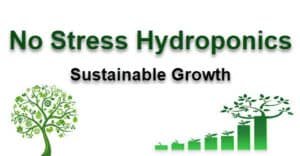
If you’re interested in creating fresh, healthy produce for your family without using traditional farming methods, then hydroponic farming may be the answer. Hydroponics is a form of growing fruits and vegetables with their roots suspended in water that is combined with essential plant foods.
This method of gardening has become increasingly popular as it can provide many advantages over soil-based farming, including faster growth rates and higher yields. In this post we’ll explore if hydroponic growing can also offer healthier food than traditional soil-based techniques by looking at three key factors: increased nutrition levels, improved water conservation and reduced exposure to harmful chemicals. So prepare yourself to learn how hydroponic systems are being used to create healthier produce while revolutionizing sustainable agricultural practices worldwide!
Basics Of Hydroponic Farming
Hydroponic farming is a growing trend in agriculture, providing numerous benefits to those who choose to utilize it. This type of farming requires no soil, instead relying on nutrient-rich water for the plants to grow. The absence of soil also minimizes risk of pests and weeds, since these threats cannot survive in an aquatic environment.
Hydroponics also provides farmers with more control over their crops since they can adjust the temperature and pH balance to ensure the best possible outcome. In addition, hydroponic farming results in higher yields compared to traditional farming methods while using less land and water, making this practice beneficial for both large-scale crop production and personal home gardens. It’s no wonder why so many are looking into the advantages of hydroponic farming – it is both efficient and cost effective!
Is Hydroponic Farming Healthy?
Hydroponic farming is an innovative and increasingly popular method of growing crops without the use of soil, instead utilizing various mineral solutions in water to nourish the plants. But is hydroponic farming really healthy? The answer isn’t so black and white. On one hand, hydroponically-grown fruits and vegetables may be more resilient to diseases as they are not exposed to any elements found in soil, such as various fungi or viruses.
Furthermore, hydroponic methods do not require pesticides, reducing the risk of contamination with potentially harmful chemicals. On the other hand, there are concerns that unfamiliar nutrients used in hydroponic solutions could produce inferior produce compared to naturally-farmed food. Additionally, studies have yet to reveal a complete assessment of the environmental impact of hydroponic farms. While it offers a promising alternative from traditional farming practices, more research is required before we can make conclusions about whether its truly healthy for both our health and environment.
Benefits Of Hydroponic Farming
Here are the benefits of hydroponic farming:
Higher Yields
Hydroponic systems use a fraction of the water that traditional soil-based farming requires, which means more efficient water usage. This enables plants to absorb their nutrients quickly and efficiently, leading to higher yields in a shorter amount of time.
Pest Control
Since hydroponic systems are usually enclosed, they are less susceptible to pests. This means fewer chemicals need to be used for pest control, reducing the amount of harmful substances present in our environment.
Reduced Use Of Fertilizers
Hydroponic systems don’t require as much fertilizer as soil-based farming does. This greatly reduces the amount of chemicals used in the farming process, creating a much cleaner and healthier soil.
Less Space
Hydroponic systems can be installed almost anywhere, including indoors or on rooftops. This makes it possible to grow food even in small spaces, such as apartments or other locations where traditional gardening would not be feasible.
Year-Round Growing
Hydroponic farming allows for year-round growing of crops due to the ability to control the climate within a hydroponic system. This helps to ensure a steady supply of fresh produce, even in cold and wet climates.
Cost Efficiency
The cost of setting up a hydroponic farm is often much lower than traditional farming. This is due to the fact that it requires less labor and equipment, as well as fewer chemicals. The long-term savings from this can be quite substantial.
Environmental Impact
Hydroponic farming has a much lower environmental impact than traditional soil-based farming. Because of the reduced use of chemical fertilizers and pesticides, hydroponic farming creates a more sustainable and eco-friendly way of growing produce.
Hydroponic systems offer many advantages over traditional soil-based farming, making them an attractive option for people looking to take their gardening to the next level. With less cost and environmental impact, they are definitely worth considering.
Is Hydroponic Farming Worth It?
When it comes to hydroponic farming, the benefits often outweigh any of the risks. Hydroponic farming allows for crops to be grown in a clean, controlled environment that minimizes the risk of pests and diseases from impacting the quality or yield of produce. It also allows for crops to be grown without soil, making it ideal for urban agriculturists looking for ways to maximize their output in smaller spaces.
Furthermore, since hydroponic farms require less water than traditional farming methods and can produce more crop outputs in a shorter period of time – thanks to optimally balanced nutrient solutions – operating costs can often be significantly lower than conventional farming too. Ultimately though, hydroponics provides an economical and ecologically sound way of providing food sustainably, while also allowing farmers to reduce waste and its impact on the environment at large.
The Final Verdict
From the research that has been conducted, it seems that consuming hydroponically grown fruits and vegetables is no different from consuming conventionally grown produce in terms of nutrition. However, more research needs to be done to determine if there are any long-term health effects associated with eating hydroponically grown foods.
In the meantime, if you’re interested in trying out hydroponic farming, it’s worth doing some further research to figure out if it’s something that you want to invest your time and money into.
